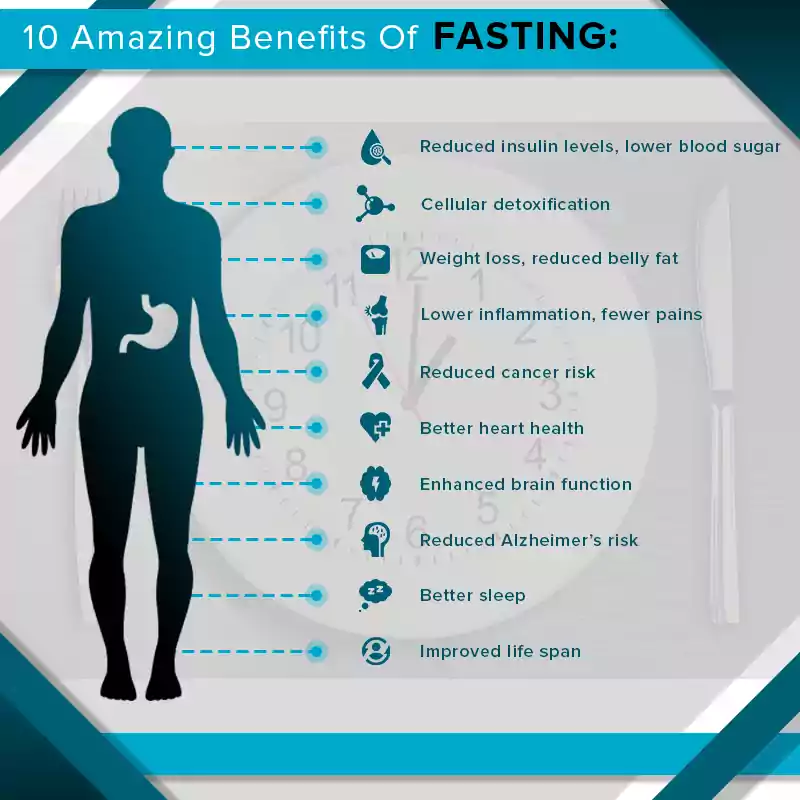
Living Well
The Easter Feast: Amazing Health Benefits (If You Observed Lent!)
Apr 13, 2017It’s that time of the year again when the Easter Bunny comes visiting. Easter eggs, hot cross buns, roast lamb, baked ham, cookies and hard boiled eggs are, all, a part of the feast. For starters, we’ve put together fantastic ways to prepare these Easter recipes in a super healthy way. So, be sure to enjoy them with family.
Now let’s look at why the Easter feast is preceded by the 40-day Lenten Fast and what the amazing health benefits of fasting are.
Religions around the world have fasts built into their practices. Christianity, Hinduism, Islam, Judaism and most other religions observe fasts during various periods of the year. The spiritual reasons of helping us turn inward, atoning for excesses and re-connecting with ourselves are evident. But, is that all there is to it?
Fasting: Many Varieties, Many Health Benefits
Scientific research has discovered that fasting has fantastic health benefits too.
One elaborate study, published in the Journal of Nutrition, looked at fasts across world religions. It refers to over fifty scientific studies on the subject. The researchers noted that “Although religious fasting is, often, a time of great spiritual growth, it can also be a time of great improvement to one’s physical health.”
The parameters noted in the study included blood pressure, blood lipids, insulin sensitivity, and biomarkers of oxidative stress. Improvements were noticed across these markers after fasts were observed.
The Lenten Fast: Staying Away From Certain Foods
Even religious fasts come in mind-boggling varieties. Take Lent, for example. Lent involves staying away from certain foods
Please note that there are vast differences in the food list and the strictness of the fast depending on how orthodox people are, where they reside and other factors that come into play.
But in general, certain foods are prohibited during lent. Meat and meat products, including beef, pork, chicken, and products with beef gelatin or lard are on the top of things to be avoided for six days of the week.
Dairy products like milk, butter, cheese and foods that contain derivatives like dairy whey and milk extracts, are also not permitted to be consumed (except on Sunday). Fishes that have a spine (such as trout, sardines, bass) are on the “avoid” list as well. Shellfish (such as lobster, shrimp, crabs and oysters) are permitted. Oils, wines and other alcoholic beverages are also forbidden during Lent. Most folks also give up something that they think they’re overindulging in, such as chocolates or sweets, during the entire period of Lent.
Also, some days of the week are specifically chosen during this period for greater restrictive fasts, during which only a single full-meal is eaten.
The Lenten Fast: Health Benefits
There’s a whole bunch of research on the general benefits of fasting (see infographic). This includes support for modern day intermittent fasting, which is being used by medical doctors to help people reverse T2D.
Specific research on folks observing Lent is a little thin, but one study found that “Lent seems to have beneficial effects on the body by reducing cardiovascular risk factors.” The small-group study found that participants were able to reduce their “…weight, body mass index (BMI) and visceral fat significantly…”
Fasting: Why Does It Work For Health?
Over millennia, humans have evolved as hunter/gatherers. We travelled in packs in search of food, with our fellow tribe members. Those were lean periods, during which the body drew from its internal reserves of fat and sugar for energy. Digestion was given a break and the cells literally “turned over”, which allowed for regeneration. It was not just fashionable to have a nice belly or hind quarters. Most of the time, it was also next to impossible to grow them. This unfortunate state was due to facing constant periods of no food.
“From an evolutionary perspective, it’s pretty clear that our ancestors did not eat three meals a day, in addition to snacks,” says Dr. Mark Mattson, Neuroscientist at the National Institute of Aging. We feasted, then fasted, then feasted, and then feasted again after, giving our bodies a chance to clean-up and regenerate. Hence, we managed to stay healthy.
Most religions in the world are products of civilization, which is a product of agriculture and settled communities. But, these communities no longer have to hunt and gather. It seems logical that for the thread that generally ties whole communities together to include practices that would foster good health (like fasts).
The Lenten Fast-Easter Feast practice could be seen as nice illustration of this age-old fasting-feasting cycle that promotes vibrant health.
Easter, But Not Lent: Sad State Of America Today!
Sadly, most of the America seems to only want the Easter feast, giving the Lenten fast a miss. A study was conducted early this year by Nashville-based LifeWay Research. It found that a shocking 76% of American Christians did not observe Lent.
Now we aren’t here to judge anyone’s religious beliefs. All that we’re saying is that everyone should be aware of the fantastic health benefits of fasting. You could consider joining other folks and doing it together, to maintain good health.
As someone who fasts regularly, I can echo the one thing that people say – it’s a lot easier than it looks! So please go ahead and share this information with everyone you care about. Also, tell us about your experiences with fasting in the comment section. We would love to know your on it. Here’s wishing you a very Happy Easter and vibrant and healthy life!.
Fasting Benefits
References:
The impact of religious fasting on human health
https://www.ncbi.nlm.nih.gov/pmc/articles/PMC2995774/
Effects of Lenten fasting on body composition and biochemical parameters
http://www.msjonline.org/index.php/ijrms/article/view/157





